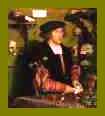Erasmus-CourseApril 15-20, 1996
April 15-20, 1996
Participating Universities:
Tampere (coordinator);
Linz,
Bremen,
Alcala,
Leicester,
Helsinki and
Joensuu
To get acquainted: Welcome to a
Tour of Old Tampere!
To get acquainted: Welcome to a Tour of Old Tampere!
Design / best view : Netscape 2.0; 1024x768; 65K colours
Topics treated in lectures, seminars, and workshops
by Arthur E. Imhof,
Free University of Berlin
Please prepare yourself well in advance.
|

|

|

|

|

|
Kindly assisted by :
 The University
of Tampere
The University
of Tampere
and
 Tampere
University of Technology
Tampere
University of Technology
But we have not only quantitatively more, but also qualitatively better years. Otherwise, the outcome would
not have been possible. Nevertheless, we are not living in an (earthly) paradise. Problems changed.
Not everybody knows e. g., what to do with all the many years. Gained years are not automatically fulfilled years. It is
up to us to make the best out of our long lives.
The week thus starts with some basics from
historical demography. These "hard facts" are then confronted with dozens of "soft pictures" from
votive tablets,
demonstrating why the existence of our forbears always was so precarious.
At the same time, they disposed of stabilizing elements, e. g.
the art of dying.
We will have a close look at the
so called "picture-ars" of the 15th century, a kind of popular "comic strip", consisting of eleven wood cuts, "readable" even
for illiterates. (The question then is, if we in our time should perhaps not developed a new ars moriendi for our time, and
if so: what we could learn from the old one.) During the second halv of the week, we turn to the more recent problems
of our long lives and will focus on the concept of a "life plan". What possibilities do we have to transform the gained years
into fulfilled years. Here again,
pictures will play
an important rôle.
The lectures, seminars, and workshops will be based on my usual CD-ROM- and WWW-teaching material from Berlin
(therefore the methodological topic on
CD-ROM and WWW
as an ideal combination).
Most texts are thus in german. But the normally rather short explanations and legends to the many included
graphs, figures, and pictures should be understandable for everybody.
Please familiarize yourself already now with the topics by
displaying the WWW-contents on your PC-monitor and by following the hot words and icons (best using the
Netscape-browser).
Working languages during the week may be english, german, french, and swedish. (I grew up in Switzerland
and spent seven years in Scandinavia.)
Working hours are from early in the morning until late in the afternoon, but there are no evening
arrangements. Earlybirds will be rewarded, since access to the internet is easier and faster
when the rest of the (western) world (still) sleeps.
Participants should:
Department of History, University of Tampere, Box 607, SF-33101 Tampere / Finland
Ammattikasvatushallinnon kurssihotelli
Last revision:
Saturday, 16. March 1996 - 08:32:14
Introductory remarks:
The overall background of all lectures, seminars, and workshops is historical demography in a very broad sense.
Let´s put it this way: Some generations ago, the average age at death was around 25 to 35 years, with a wide range
of deviation of course. In the mean time, i. e. after the fundamental change from an always precarious existence
to a reasonably
secure life time, the ages at death focused and lay twice or three times as high as earlier. In comparison to our
ancestors, we have thus two or three lives at our disposition.
Some further links to Berlin teaching material :
![]() Questions? ===>
Please contact me by e-mail
Questions? ===>
Please contact me by e-mail
![]() .
.
![]() Welcome to my Homepage.
Welcome to my Homepage.Questions regarding the course should directly be asked to the local organizer and coordinator:
Phone: +358-31-215 6154 / Fax : +358-31-215 6980 / e-mail: history@uta.fi
Senior Research and Teaching Assistant: Pertti Haapala, Ph.D. (e-mail: hipeha@uta.fi)
Secretary: Mrs Tuija Puntanen (e-mail: F2TUPU@uta.fi)
Computer Service Center: Mr. Tuomo Myllynen (e-mail: cctumy@uta.fi)
In Helsinki: Professor Yrjö Kaukiainen (e-mail: kaukiain@valt.helsinki.fi)
(always mentioning: Erasmus course ICP-95-SF-5031/08)
Lapinkaari 1
SF-33180 Tampere / Finland
Phone: +358-31-253 4520
Fax : +358-31-253 4501
Tuesday, 26. December 1995 - 15:02:23